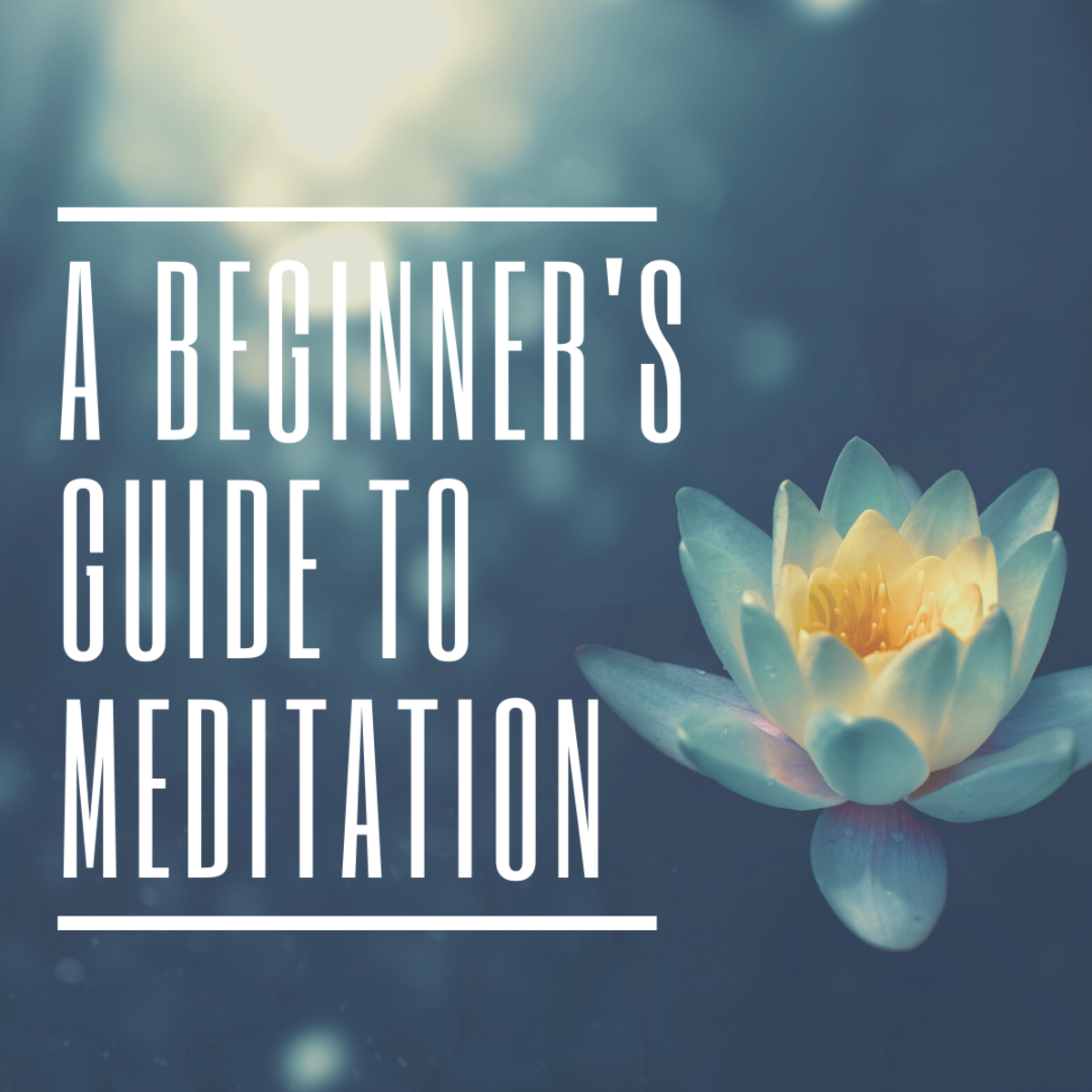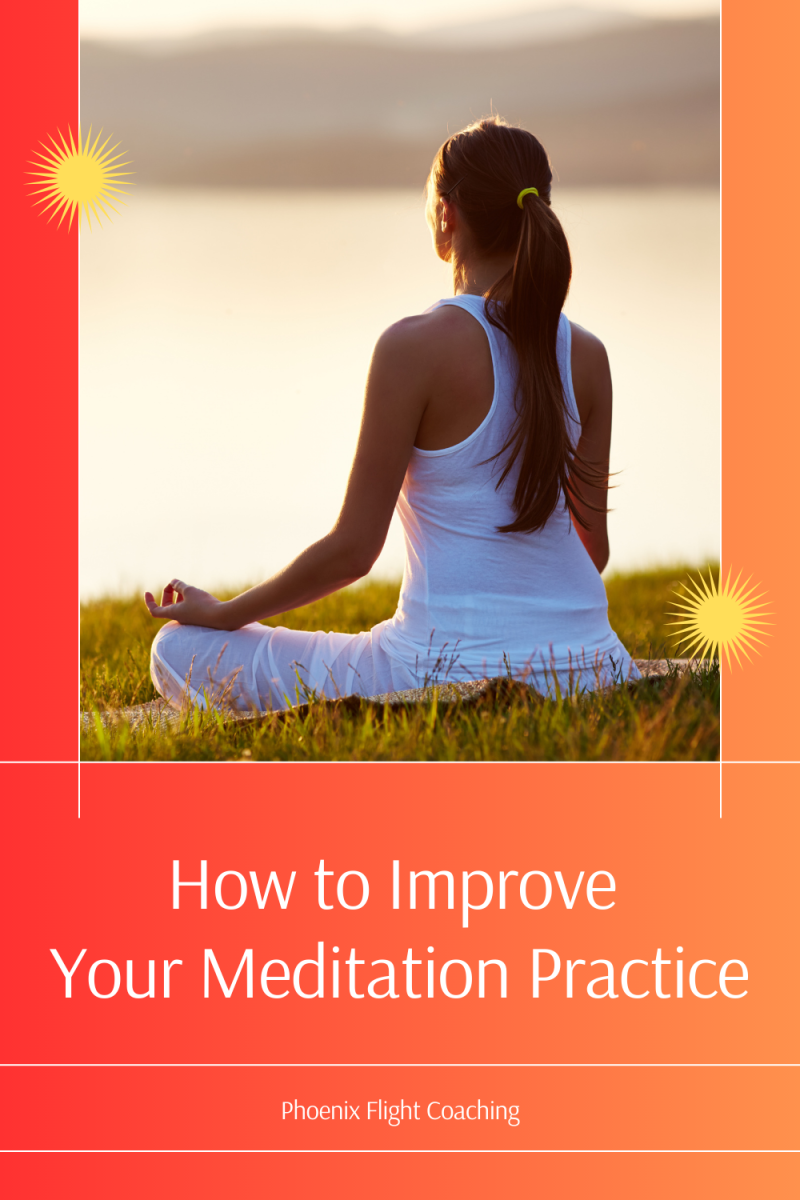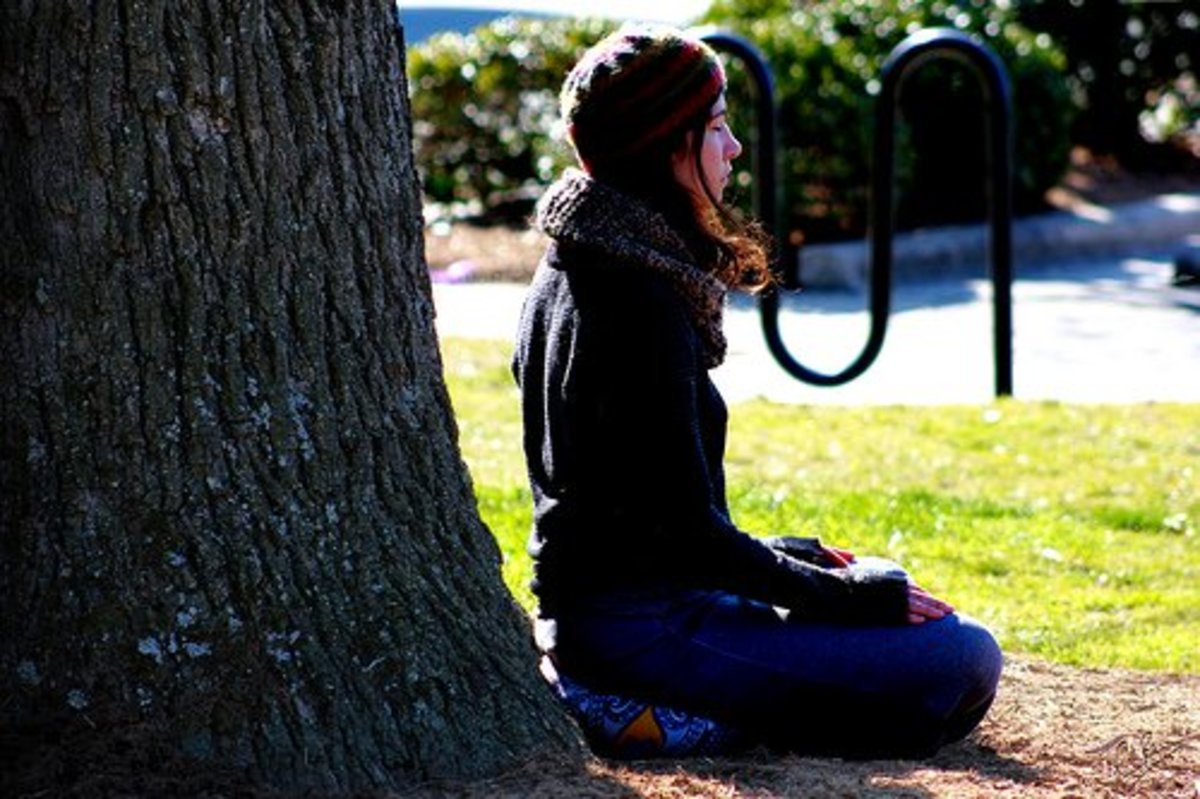Meditation to Improve Your Health and Possibly Help You Live Longer

Can Learning to Meditate Benefit Your Health and Help You Live Longer?
Learning to meditate may help you live longer and, what's more, it may be easier than you think. Have you ever contemplated the beauty and intricacies of a flower? Not asking anything of the flower, you simply appreciated the way the petals folded in on one another or the brilliance of the colors as the fragrance, soft or strong, surrounded.
Maybe you were lucky enough to catch sight of a beautiful butterfly delicately lighting on a single petal, only to see it flit away in a breath. Sadly, childhood may have been the last time you lay on your back and were lost in the majesty, the vastness, the purity of a clear blue sky, thinking of nothing, demanding nothing, just being. In those simple actions you stood at the door of meditation. Believe it or not, it doesn't take much to walk through that door and learn to meditate.
Once you learn to meditate, you will find that meditation eases you into intentional clearing of the mind. Over time, people who regularly place themselves in a meditative state have been shown to have a slower heart rate, reduced blood pressure, and lowered blood sugar levels. With meditation a sense of calmness and well being can be achieved that will transcend the moment of meditation and will, in fact, remain with you throughout the day.
Because it has a positive affect on blood pressure, blood sugar and the heart, learning to meditate may actually help you live longer. Performed properly, meditation becomes a shield, the armor you wear against the everyday stressors of life we all face: demands of our careers, our families, our social lives. After all, how really important is it that we have to wait a little longer than anticipated at a traffic light or that the line in the grocery store is barely moving? We know we will reach our destination. Isn't it better to "arrive" with our mental state intact?
There are many types of meditation and many wonderful ways to meditate. Some methods use sound, some have you concentrate on an object, other methods involve chanting. Some types of meditation include moon meditation, meditative walking and zen meditation. Ultimately, the technique you use is your choice as you begin your journey of learning to meditate. What is important is that you find a technique that makes you comfortable, one you will follow consistently. But be warned, results will not happen overnight. As with anything else, learning to meditate takes time and reaping the rewards of meditation will also take time. But the rewards are there and well worth the effort because successful meditation can positively impact both your mental and physical health.
Meditation can provide the break that allows the right brain to take over for a change. In other words, with therapeutic meditation we are better able to access our intuition, our perceptiveness, our imagination. It is a well deserved mental vacation from the constant left brain "active chatter" that most of us experience throughout the day.
Meditation helps us view life's challenges in perspective and with an awareness that all things and events are transitory, that this life we have is a gift and that we should appreciate each unique moment we are given.

Peaceful Sounds for Meditation Can Be an Important Part of Meditation

Meditation Can Be for Anyone
How often do you meditate?

You Can Learn Methods of Meditation: Getting Started
So what is meditation? And what is it that you do? Can you learn to meditate? Can learning to meditate help you live longer?
In truth, you do nothing except regularly find the time and the place to meditate. It is in these moments that you choose to do nothing, emptying your mind as best you can. Within that "nothing" grows awareness of the present as you may not have been aware of it before. Although it sounds very mystical, it is really very easy.
To get started and begin to reap the benefits of meditation, select a quiet place. The place can be a room or corner in your home, it can be in the park, it can even be at your work. The key is to gain a few uninterrupted moments. Starting with as few as five minutes of stillness and slowly increasing that time will be of benefit.
Perhaps the easiest method of meditation to learn, one that can be done anywhere, is to concentrate on the breath, by performing slow, deep breathing. Start out concentrating on this rhythmic slow inhale and slow exhale form of breathing counting every five breathes. It may help to use the mantra of the Vietnamese spiritual leader Thich Nhat Hanh in his book Peace Is Every Step. He writes" Breathing in, I calm my body. Breathing out I smile." Gradually build up to longer periods of time as your ability to hold random thoughts at bay increases. Later, other methods of meditation will come easier. Eventually, you may be able to mix different methods.
Next, find a position that is comfortable for you to be able to meditate in. This can depend on where you decide to meditate. One of the most common ways is to sit with legs crossed, arms lightly resting in your lap. You can also meditate while sitting in a chair, feet on the floor. Meditation lying prone may also be chosen. Again, it is what makes you comfortable and relaxed that will determine the posture you assume. One of the ways to meditate gaining in popularity is walking meditation. The principles of mindfulness are the same except that you are in motion.
Meditation, Health and Living Longer
As for the benefits of learning to meditate on health and living longer, researchers have concluded that there are measurable improvements in the brain after a minimum of two weeks of meditation, thirty minutes at a time. Among the many benefits of meditation on health, regular meditation sessions have been demonstrated to decrease blood pressure. It has been shown to impact bad habits like smoking and drug addition. Meditation has also aided in improving the symptoms of depression and anxiety in many.
Eventually, the joy of releasing the clutter from your mind will have lasting affects on your body that, along with other healthy habits, may well increase your life span. After all, meditation may have reduced some of those serious medical issues that can shorten or negatively impact the quality of your life.
Just Be
Once you learn to meditate, everyone reacts differently to meditation. What has been discussed here are the possible benefits, including possibly living longer. At the very least that can be accomplished is that you have made time to honor yourself by making time for yourself. Be patient as you learn to meditate. Meditation will, in turn, teach you to be patient in challenging situations and patient with others.
Follow the path, open the door, learn to meditate and, for at least a little while, just be.
Disclaimer: In no way does any of the information in this article replace the advice or medicines prescribed by a medical doctor.

This content is accurate and true to the best of the author’s knowledge and does not substitute for diagnosis, prognosis, treatment, prescription, and/or dietary advice from a licensed health professional. Drugs, supplements, and natural remedies may have dangerous side effects. If pregnant or nursing, consult with a qualified provider on an individual basis. Seek immediate help if you are experiencing a medical emergency.
© 2011 Cynthia B Turner








